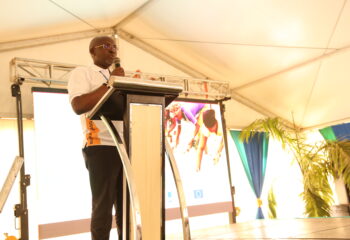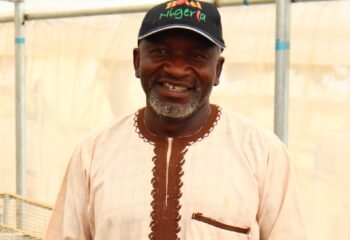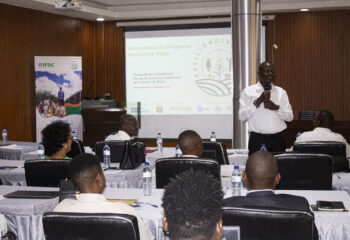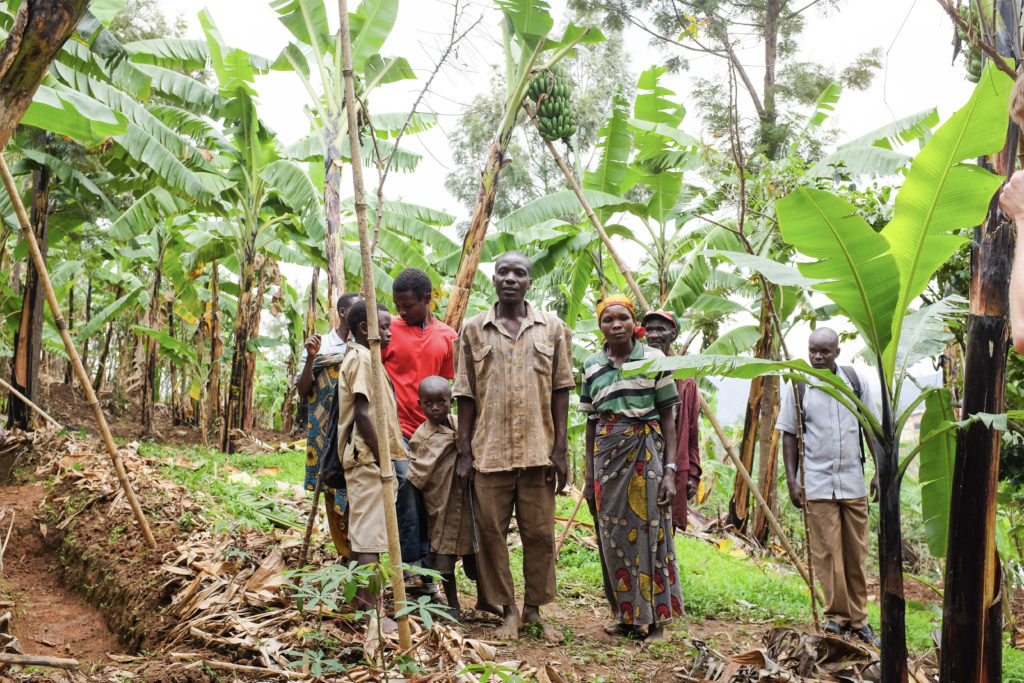
In Burundi, protecting and restoring soil fertility through integrated farm management contributes significantly to strengthening the resilience of these farmers to climate change – Case of the Soil Fertility Stewardship Project (PAGRIS).
How is climate change affecting Burundian farmers?
In Burundi, a country with an area of 27,834 km2, agriculture is practiced by more than 90% of the population, which is currently estimated at 12 million inhabitants. In 2008, the population density was 285 inhabitants per km2 and has increased 2-3% annually. About 1 million households practice agriculture on family farms of about 0.5 hectares. Agriculture is essentially subsistence, with crop yields that are generally too low to guarantee food security.
Among the factors contributing to the vulnerability of agricultural households, poor access to land and continuous degradation of these soils constitute a major concern, especially since these represent the primary means of production.
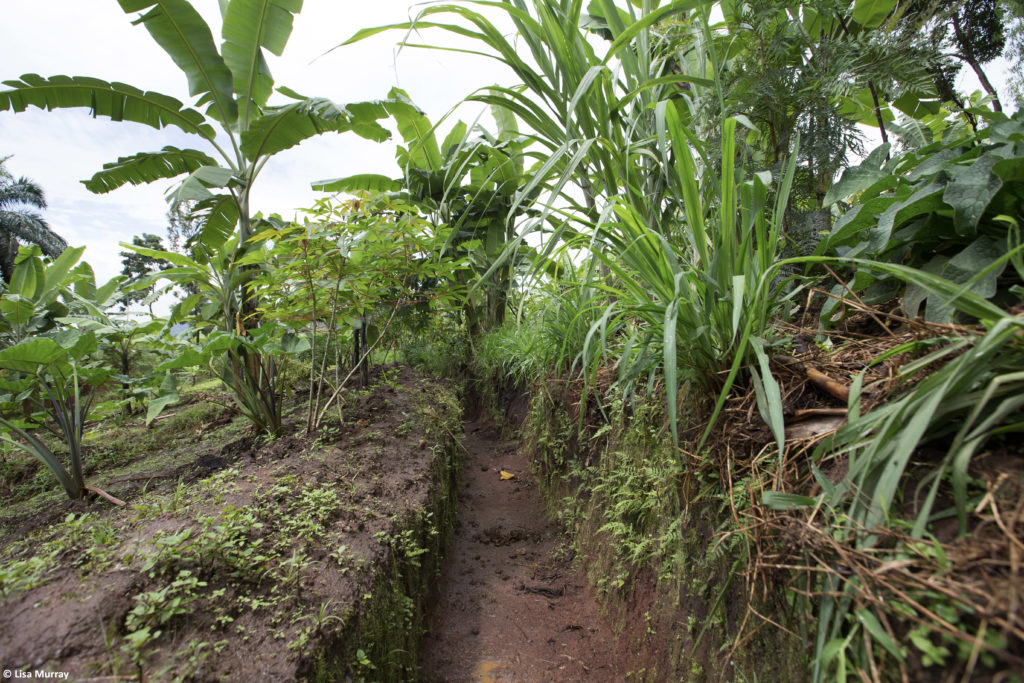
In fact, most soils in Burundi are of the tropical type, very fragile in nature and sensitive to erosion, with a low capacity to retain nutrients, a natural tendency to acidification, and consequently a reduction microbial activity and an increased risk of aluminum and iron toxicity. Added to this is the high population density and agricultural intensification, which no longer ensures the integrated management of soil fertility. According to the World Bank (2021), Burundi loses 38 million metric tons (mt) of soil each year due to land degradation, which corresponds to 100 mt of soil per hectare per year in the most sensitive areas.
Demographic pressure has also resulted in significant deforestation, reducing natural and forest areas, which play a significant role in the water and carbon dioxide cycles, as well as the protection of soil and soil fertility. In addition, buffer spaces, which contribute to the preservation and maintenance of microclimates, have shrunk. The loss of these spaces and trees has thus contributed to climate variations in the surrounding area.
“Climate change refers to long-term variations in temperature and weather conditions on Earth’s surface.”
In Burundi, the effects of climate change are felt with variations in the climate, particularly rainfall, which has become more and more extreme. These heavy rains fall on bare soil without vegetation cover and wash away a large amount of arable land, contributing to even more soil degradation and, therefore, increasing the vulnerability of Burundian farmers.
To face these challenges, farmers and the government must invest more in the adoption of specific measures for the conservation of water and soil and in the supply of quality agricultural inputs, including amendments such as dolomite and organic and mineral fertilizers.
How does PAGRIS intervene to fight against this soil degradation and restore its fertility? The project promotes responsible and integrated management of farms and watersheds.
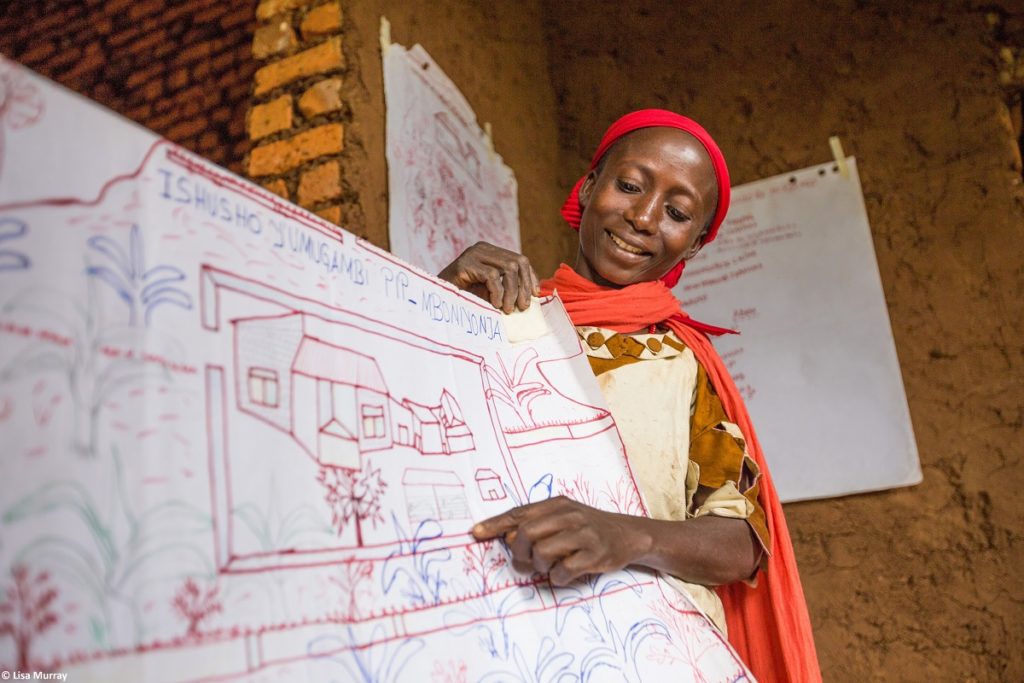
Phase 1: Awareness and Planning
- PAGRIS supports farming households and target communities to actively participate in analysis and reflection on the issues of soil fertility, erosion, and sustainable land management. This phase helps determine the issues, their causes, and consequences, as well as identify the strengths, weaknesses, challenges, and opportunities.
- Then, these households and communities better understand the need to find solutions to these problems and are invited to engage in the development of a plan for their plot of land(household level) and a plan for the watershed (community level), with an initial three-year time line.
- The project facilitates households and communities to identify the roles and responsibilities of the different actors for implementation of the identified projects.
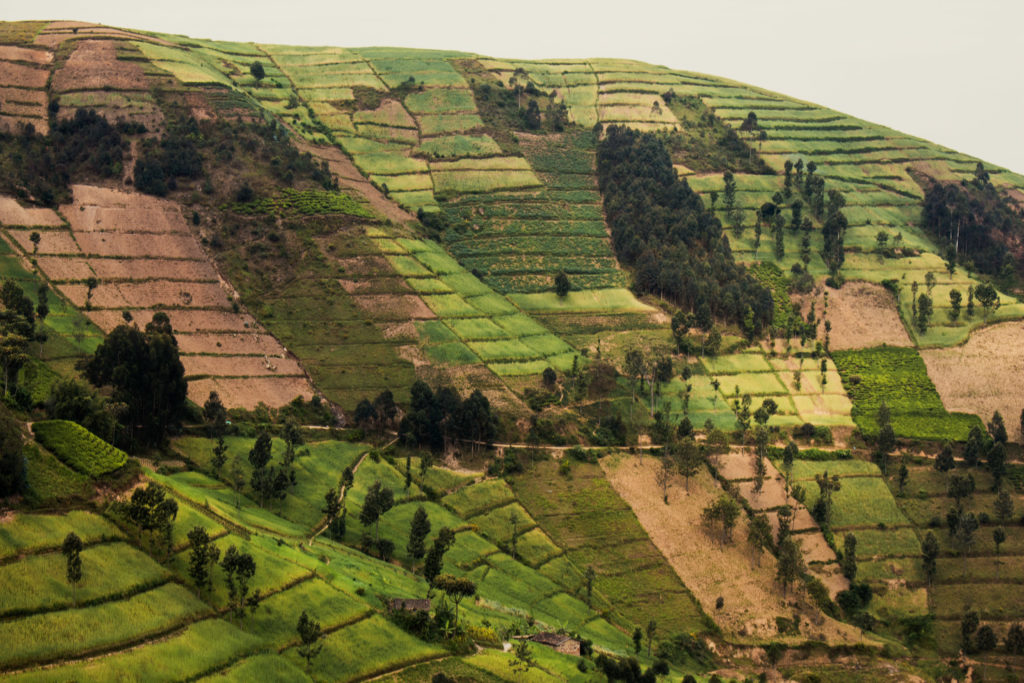
Phase 2: Implementation of Plans
- PAGRIS supports communities to implement their plan to ensure full protection of their farms and watersheds. To this end, the project facilitates access to knowledge necessary for the implementation of the plans and to inputs that are not available locally.
- The project promotes innovations through a research-action approach by supporting research farmers in the implementation of demonstration plots. These plots are an opportunity to integrate practices such as intercropping, crop rotation, mulching, composting, cover crops, water management, minimum tillage, biomass production, and recycling.
- The communities engage in projects as a group for developing of contour lines and planting deep-rooted grasses and agroforestry to prevent erosion and cover crops to retain soil moisture and preserve fertility.
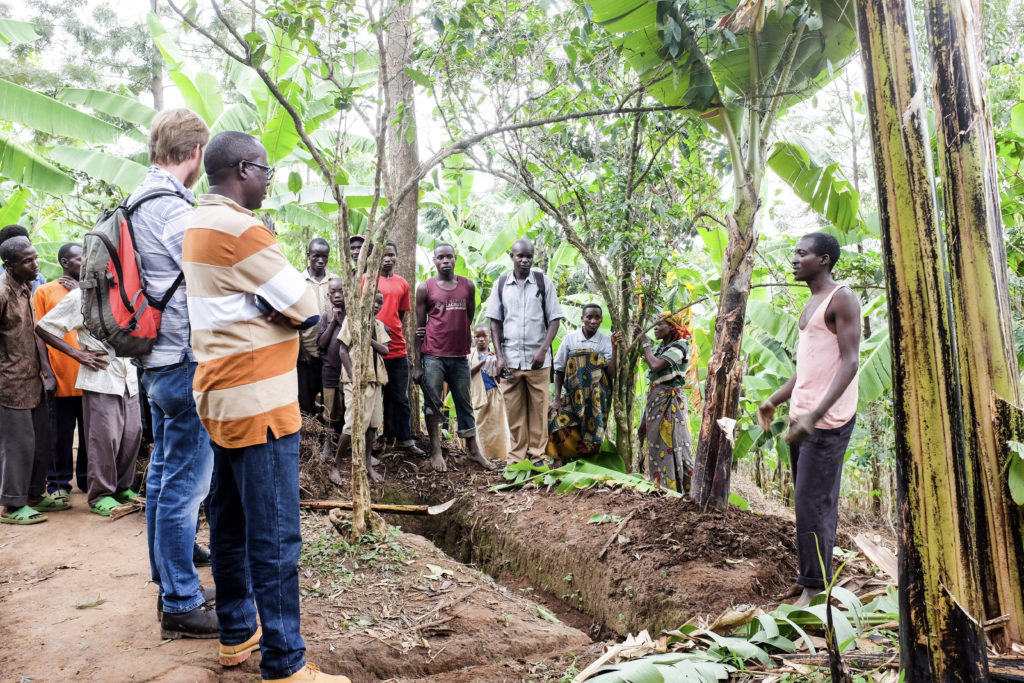
Phase 3: Capitalization and Mutual Learning
Learning and exchange sessions are facilitated by PAGRIS to allow neighboring communities to draw inspiration from the results and organize themselves according to these same dynamics. These sessions also involve the technical services and administration necessary in supporting these communities and households. The solutions that have been implemented reinforce a change in the mentality of farmers, who become more responsible and favorable to adaptation to climate change through good management of soil fertility, water resources, and nutrients.

